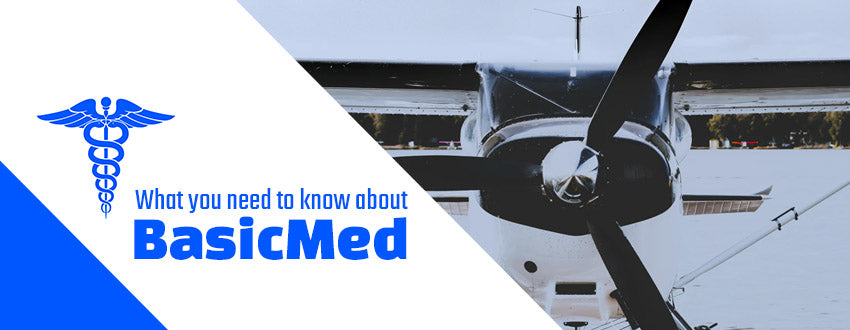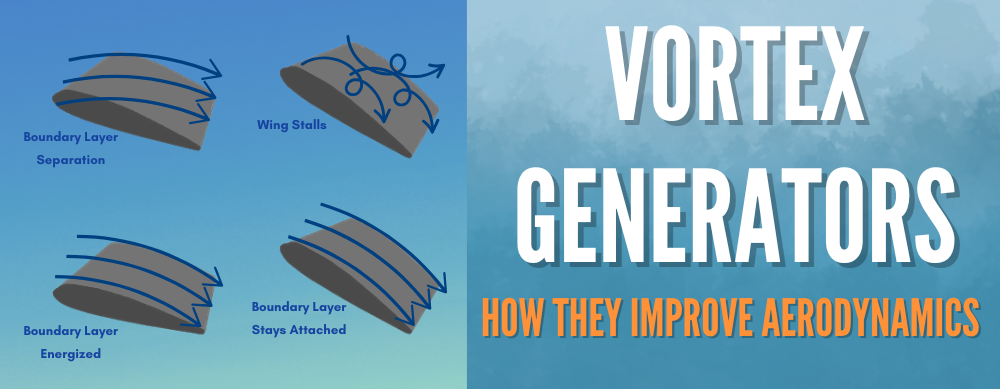Are you a general aviation pilot with a third class medical? Would you like an alternative to visiting a designed aviation medical examiner (AME) every few years in order to maintain your medical clearance? How would you like the ability to have your personal physician conduct your medical exam?
If that sounds appealing, you may be interested in the BasicMed program. Although this program was developed in 2016, there is still a lot of confusion and opportunity for clarification surrounding what the program does and who it applies to.
Today we will be answering some of the most frequently asked questions so you can walk away with a better understanding of the essentials of BasicMed. Let's dispel the myths and uncover the facts about this program, empowering you with the knowledge you need to soar confidently.
What is BasicMed?
The FAA says that BasicMed is “an alternate way for pilots to fly without holding an FAA medical certificate as long as they meet certain requirements.” The BasicMed program came about as part of the FAA Extension, Safety, Security Act of 2016 (FESSA).
Essentially, BasicMed offers eligible pilots a flexible alternative means of renewing and maintaining their medical certification.
What are the advantages of BasicMed?
Depending on your situation, the BasicMed program may offer a less expensive, more convenient, less time-consuming and more private certification process.
Under BasicMed, any state-licensed physician can sign off on a pilot’s competency for this medical certificate. You are not required to get an exam from an AME. This can mean lower office visit co-pays and offer you the chance to schedule your standard annual physical appointment on the same day and at the same location as your BasicMed exam rather than having to make separate appointments.
Since you can see your general practitioner, you won’t need to go through the extra step of locating – and perhaps traveling to see – an AME.
Another time-saving advantage for pilots over age 40 is that the medical exams for BasicMed are only required every 4 years rather than every 2 years like a third-class medical.
Those pilots who value their privacy will appreciate that personal medical records are not shared with the FAA through BasicMed. In fact, no medical paperwork is turned in to the FAA at all. You simply must keep a copy of your completed medical checklist with you when flying.
Who qualifies for BasicMed?
You, your aircraft and your flight plans must all meet BasicMed qualifications for you to be eligible to fly under BasicMed clearance. In general, BasicMed is a good fit for many recreational General Aviation pilots and can be an alternative to a third-class medical certification.
Your qualifications
- You must have a valid U.S. driver’s license
- You must have held a medical certificate after July 14, 2006.
- You must not have had your most recent application for a medical certificate denied
- You must complete the BasicMed certification process (more on that later)
Your aircraft’s qualifications
- Your aircraft must be authorized to carry not more than 6 occupants.
- Your aircraft must have a maximum certified takeoff weight of no more than 6,000 pounds.
Your flight plan’s qualifications
- Your flight must be operated under VFR or IFR.
- Your flight must be within the United States, U.S. territories or the Bahamas.
- Your maximum flight altitude must be less than 18,000 feet MSL.
- Your speed must not exceed 250 KIAS.
- The flight must not be for compensation or hire.
What restrictions are there with BasicMed?
As you can see based on the qualifications, there are some restrictions built into BasicMed that limit the type of aircraft and flights that you can make.
BasicMed certification does not work for you if:
- you will be flying an aircraft rated for more than 6 occupants
- with a maximum certified takeoff weight over 6,000 pounds
- you will be flying outside the United States
- you will be flying above 18,000’ MSL
- you will be exceeding 250 knots indicated airspeed (KIAS).
- You also cannot use BasicMed if you are being compensated or hired to pilot the flight.
Before you can obtain BasicMed certification, you must have already held a medical certification at some point since July 14, 2006. If you have not, you will need to obtain a standard medical certification first and you may then be eligible to recertify through BasicMed.
Do certain medical conditions still require special issuance under BasicMed?
Medical conditions that require a special issuance under a third-class medical certification, also require an issuance to fly under BasicMed.
If you have already received a special issuance for a condition, and that issuance was valid within 10 years prior to July 15,2016, that issuance will apply for BasicMed and you will not need obtain a new issuance.
New issuances are only needed for newly developed conditions or if you do not have a previous qualifying issuance.
How do I get certified under BasicMed?
- Step 1, make sure that you meet all the qualifications for BasicMed, as discussed earlier.
- Get a physical examination with any state-licensed physician. You and your physician must fill out the FAA 8700-2 Comprehensive Medical Examination Checklist.
- After your exam is complete and the self assessments from the FAA 8700-2 form is filled out, you must register for and complete an approved free online medical self-assessment training course. The course should take about 1 hour to complete.
After completing the course and passing the quiz, you will receive a BasicMed certificate of completion. Print this for your logbook. BasicMed is a self-certification program, so you do not need to submit your certificate of completion or any other paperwork to the FAA.
- When flying, carry your driver’s license, FAA 8700-2 and online training course completion certificate.
- Have a valid flight review.
How often do I need to re-certify under BasicMed?
To fly with BasicMed, you will need an exam with completed FAA 8700-2 form every 4 years. You will need to retake the online BasicMed course and pass the quiz every 2 years. Remember to carry the updated certificate with you.
BasicMed vs medical certificate comparison
Now that you’ve learned about BasicMed, let’s end with a quick side-by-side comparison with the third class medical, that will help you make the final determination on which option is best for you. You can also hold both certifications at the same time if you wish.
BasicMed Overview
- Medical exam every 4 years (unless your insurance requires more frequent exams)
- Any state-licensed physician may conduct the exam
- Online medical course completion every 2 years
- Extra limitations on qualifying aircraft and flight plans
- FAA doesn’t receive your medical information
- Special issuance certificate required for certain medical conditions
Third-class Medical Certificate Overview
- Medical exam every 2 years (if over 40) or every 5 years (if under 40)
- An Aviation Medical Examiner (AME) must conduct the exam
- No online courses required
- No extra limitations on qualifying aircraft and flight plans
- FAA receives more medical details and information
- Special issuance certificate required for certain medical conditions
Still have some questions on BasicMed? Check out the AOPA BasicMed FAQs for more details and insight.
Takeaway
This program provides advantages such as reduced costs, convenience, and privacy, as personal medical records are not shared with the FAA.
BasicMed certification is available every 4 years, and while it comes with limitations on aircraft and flight plans, it offers a viable option for many recreational pilots as an alternative to the traditional third-class medical certificate process.
For those seeking an alternative to regular AME visits and willing to adhere to the program's requirements, BasicMed offers a flexible and accessible way to ensure their health conditions align with the necessary pilot and completion certificates.
Aviation Medical & Safety Related Articles
Our guides are designed to help student pilots become professional pilots and for private pilots to brush up on their knowledge and skills.













